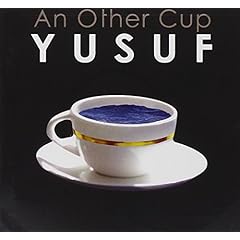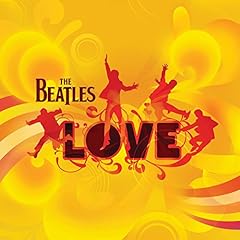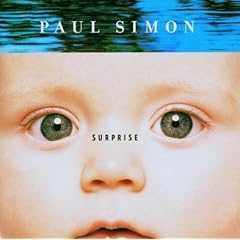Participatory media, participatory church
Fellow blogger Tim Bednar, who has a knack for pulling together disparate bits of information and synthesizing them into something blogworthy, does just that with his recent posts regarding the rise of bloggers as the new amateur preachers. Noting the trend of the blurring of lines between blogging and journalism, as outlined in this We Media white paper about the rise of participatory, peer-to-peer journalism, Bednar observes that the clergy actually have much to learn from their congregations, just as journalists could stand to listen to their readers, viewers and listeners. This sharing of knowledge, this breaking down of barriers, would benefit everyone. (See also Bednar's post about congregations knowing more than their pastors.)
I find this "participatory" discussion on journalism and clergy both fascinating and amusing. As both an amateur journalist (the only kind there is) and an amateur minister (bi-vocational youth pastor), I've always tended to approach both vocations ("callings," if you will) from a grassroots, populist perspective. Ever since my J-School professors drilled it into my head, I've maintained that journalism is not a profession and should never become a profession. (For more about this, see this post from about a month ago, in which I comment on this Columbia Journalism Review article about "the new amateur journalists".) By its very nature, journalism should be participatory, and it has been throughout the years.
Was Thomas Paine a professional journalist? Was Edgar Allen Poe? Mark Twain? Nellie Blye?
Somewhere along the line, however, journalists got cocky and fell into this trap that their "high calling" set them apart as some sort of priestly tribe. Maybe it happened when they started building journalism schools and started sending budding journalists to college rather than into the print shops. Maybe the same thing happened to preachers when they started sending them to seminaries rather than out on the circuit.
I don't know when or how it all began. But I maintain that journalists, to be as objective as possible, should not be set apart. They should not be professionals.
The same, I think, should be said of clergy. The best ministers I know are bi-vocational "amateurs" who have learned their craft through personal study and practice. My pastor, who has been in ministry for nearly 50 years, never attended seminary. Never even attended college. He barely graduated high school. But he is a scholar of Scripture and life, and his wisdom far surpasses the wisdom of many well-educated professional ministers.
:: Andrew 11:05 + ::
...
bloggedy blog
bloggedy blog recommends
bloggedy pod (my podcast page)
Independent hotels
in Missouri
eMusic's Power Charts: The Most Interactive Music Charts Online.
In rotation
What I've been listening to lately. Click album cover or hyperlink to hear track samples and learn more.
 Rickie Lee Jones, Sermon on Exposition Boulevard
Rickie Lee Jones, Sermon on Exposition Boulevard
 Patty Griffin, Children Running Through
Patty Griffin, Children Running Through
 Of Montreal, Hissing Fauna, Are You the Destroyer?
Of Montreal, Hissing Fauna, Are You the Destroyer?
 Field Music, Tones of Town
Field Music, Tones of Town
 De Bossen, The Girl Collection
De Bossen, The Girl Collection
 Cold War Kids, Robbers & Cowards
Cold War Kids, Robbers & Cowards

Frida Hyvonen, Until Death Comes

Tratore Basics Vol. 2, Novo Rock Brazil
 Yusuf: An Other Cup
Yusuf: An Other Cup
 The Beatles: Love
The Beatles: Love

The French Kicks: Two Thousand

The Blow: Paper Television

Freedom Haters Unite! A Bloodshot Records Sampler

Swan Lake: Beast Moans

Prototypes: Prototypes

Scanners: Violence Is Golden

Voxtrot: Mothers, Sisters, Daughters & Wives

Voxtrot: Your Biggest Fan

Macon Greyson: Translate

The Evens: Get Evens

Veruca Salt: Veruca Salt IV
 Bob Dylan: Modern Times
Bob Dylan: Modern Times

Pink Tuscadero: Look Your Best

Leigh Nash: Blue on Blue

Yo La Tengo: I Am Not Afraid of You and I Will Beat Your Ass

The Hold Steady: Boys and Girls in America

Bobby Bare Jr.: The Longest Meow"

The Be Good Tanyas: Hello Love

The Lemonheads: The Lemonheads

Ben Kweller: Ben Kweller

The Pipettes: We Are the Pipettes
 Paul Simon: Surprise
Paul Simon: Surprise

Exene Cervenka and the Original Sinners: Sev7en
 Johnny Cash: American V: A Hundred Highways
Johnny Cash: American V: A Hundred Highways

The John Doe Thing: For the Best of Us

The Fondas: Runaway Bombshell

Buzzcocks: Flat Pack Philosophy

Asobi Seksu: Citrus

Tapes 'n Tapes: The Loon

Various Artists: 2006 Pitchfork Music Festival Sampler (24 free tracks)

The Futureheads: News and Tributes

The Bottle Rockets: Zoysia

Camera Obscura: Let's Get Out of This Country

Art Brut: Bang Bang Rock & Roll

Drive By Truckers: A Blessing and a Curse

The Raconteurs: Broken Boy Soldiers

Belle and Sebastian: The Life Pursuit

Cat Power: The Greatest
bloggedy tags
from our sponsors
for your viewing pleasure
24x7
rocketboom
the Richard Show



 Simon Dawes,
Simon Dawes,